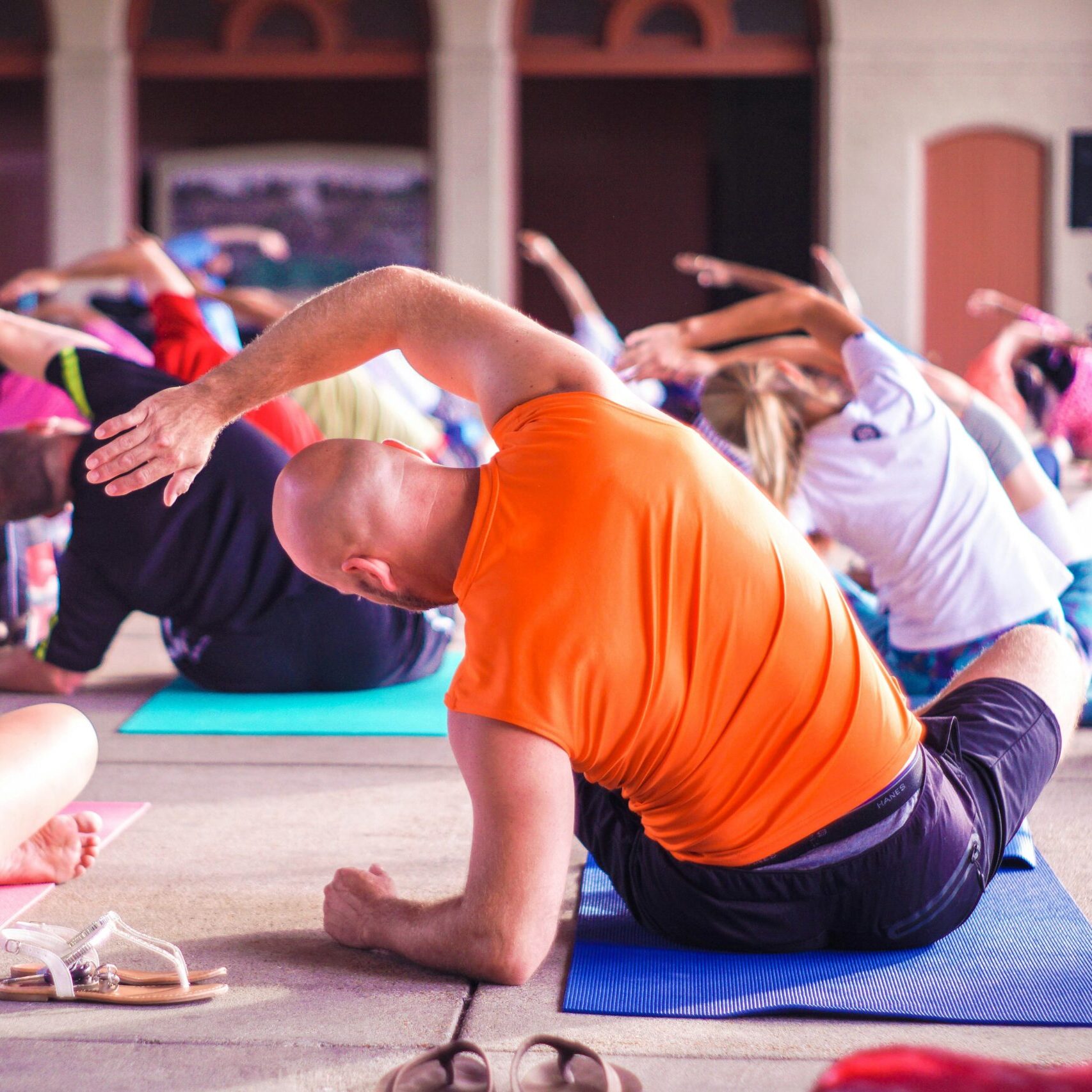04 April 2024
Top Strategies for a Movement-friendly Workplace
Office workers spend up to 80% of their time sitting down (BMC Public Health, 2024). Aside from poor physical health outcomes, this also risks undermining mental wellbeing. Prolonged time sitting down has been linked to greater anxious and depressive symptoms (Rebar et al., 2014).
8 Strategies to Promote Movement in the Workplace
If organisations want to support employee mental health, promoting physical movement is a crucial part of the conversation. To help, our experts share their top 8 strategies for promoting movement in the workplace.
1. Organise movement-based challenges
Encourage friendly competition and camaraderie by introducing movement-based challenges. Employees can compete individually or in teams to achieve specific movement goals. Provide regular updates on achievements and offer small prizes to support participation and motivation.
2. Encourage walking meetings
Managers spend over 50% of their time in meetings (Pumble, 2024). Where possible, encourage walking or standing meetings. Alongside the clear physical benefits, walking meetings have other advantages. Research has shown that they also increase innovation, collaboration and open communication (Oppezo and Scwartz, 2014). So, if you’re ready for more engaging and effective meetings, encourage walking meetings among your people.
3. Educate employees on physical activity
Most people know that regular movement is essential for good health. The main challenges are knowing where to start and creating long-term exercise habits. Support your employees with educational resources and workshops. For maximum benefit, include an array of topics that cater to different needs and demographics.
4. Drive healthy habits with interactive posters
Encourage your employees to move more throughout the day by putting up eye-catching posters around the office. These posters can promote easy exercises such as desk stretches and taking the stairs rather than the lift. They can also display information and statistics about the importance of movement. It’s about encouraging small, regular actions.

5. Invest in standing desks
Standing desks are an easy and effective way to reduce excess time sat down. They support musculoskeletal health, a leading cause of workplace absence (HSE, 2023). Just one hour standing up at work can reduce upper back and neck pain by 54%. What’s more, standing desks may also have psychological benefits. Individuals who use standing desks report reductions in fatigue, tension, and low mood (Pronk et al., 2011).
6. Encourage flexible working to accommodate exercise
Support employees to integrate exercise into their day by supporting flexible working. This could include employees taking longer lunch breaks so they can get to the gym or flexible start and end times to make good use of daylight hours. With greater flexibility, employees can make movement a priority.
7. Organise regular group activities
Foster a sense of community among employees by organising regular group activities such as yoga classes, running clubs, or lunchtime walks. Not only do they get your people moving, they promote social bonding, stress reduction and mental wellbeing. If you have a team of Wellbeing Champions, be sure to get them involved in spreading the word and keeping momentum.
8. Offer discounts for a local gym membership or fitness classes
Almost two-thirds of UK adults say that cost is a barrier to exercise (Loughborough University, 2023). Organisations can alleviate some of the financial burden by partnering with local gyms or fitness centres. These partnerships could enable discounted memberships or subsidised fitness classes.
Conclusion
Regular movement is essential for maintaining a healthy workforce. But it remains a challenge for many employees. By implementing some of these strategies, you can help your people feel more empowered to build physical activity into their daily life, supporting both their physical and mental health.
Mental Health Awareness Week (13-19 May) is on the horizon. Find out more about our workshops designed to support a healthy mind and body below.
Explore our selection of workshops and webinars for Mental Health Awareness Week 2024

Explore our selection of workshops and webinars for Mental Health Awareness Week 2024








